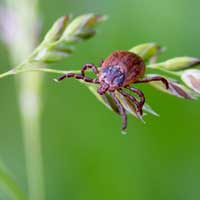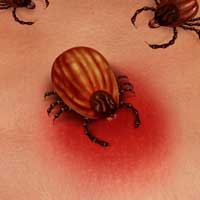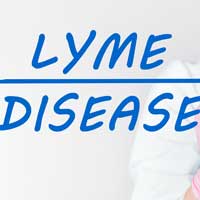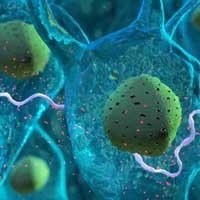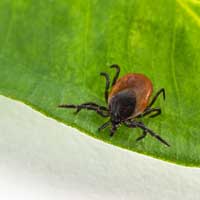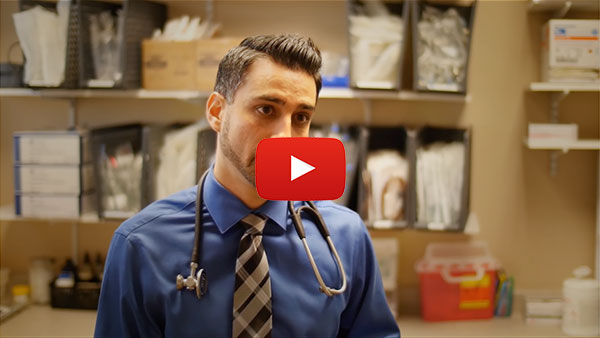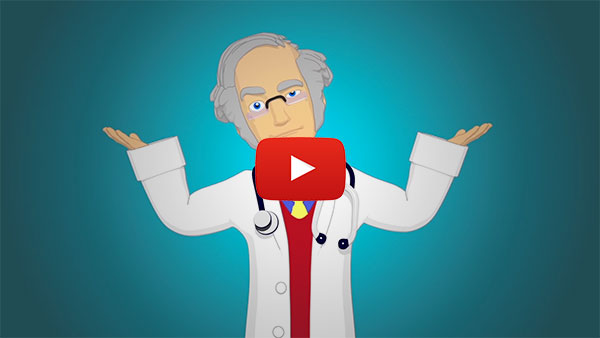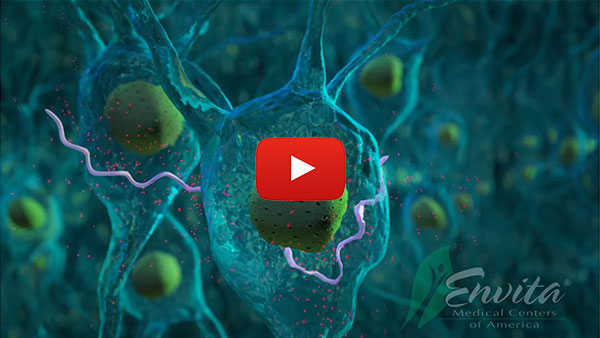Chronic Lyme Disease Complex vs Post-Lyme Disease Syndrome
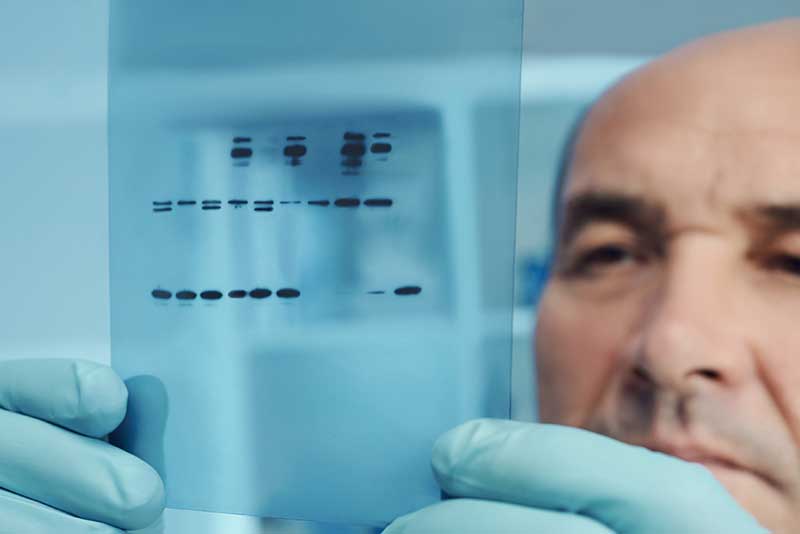
While “Chronic Lyme Disease Complex” and “Post-Lyme Disease Syndrome” may seem similar, they are very different from each other and knowing the difference may be essential for achieving symptom remission for a Lyme disease patient. Post-Lyme Disease Syndrome (PLDS) is a diagnosis given to patients who continue to experience symptoms like depression, fatigue, and muscle/joint aches after being diagnosed and treated for Lyme disease with the recommended antibiotic regimen [1].
Disclaimer: Individual results will vary. Envita makes no guarantees for outcomes. Each patient case is unique. Please consult your doctor before making any changes to your medical treatment. Not every patient is a candidate for care or achieves these results. Treatments used in this case may not all be FDA approved for the treatment of this condition.
Post-Lyme Disease Syndrome is always characterized by a Lyme borreliosis infection and while it may involve many other infections including viral, bacterial, and fungal, those infections are controversially not recognized as part of PLDS and frankly are rarely tested for properly.
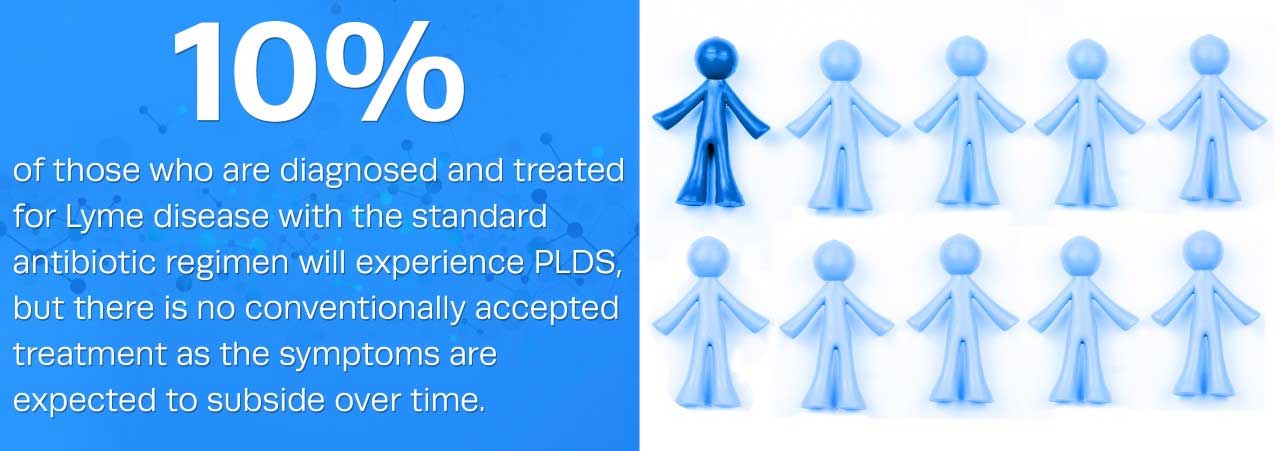
You may have heard of Chronic Lyme Disease or even Chronic Lyme Syndrome. It is important to know that Post-Lyme Disease Syndrome was previously recognized as Chronic Lyme Syndrome, but the medical community no longer recognizes that diagnosis and it is now considered an outdated term.
Statistics say that around 10% of those who are diagnosed and treated for Lyme disease with the standard antibiotic regimen will experience PLDS, but there is no conventionally accepted treatment as the symptoms are expected to subside over time [1]. The problem with Post-Lyme Disease Syndrome is that conventional medicine only recognizes Lyme Borrelia as a causative factor and provides no treatment for the primary and secondary co-infections and other complicating genomic risks like HLA-DR[1]. On top of that, PLDS only covers patients who have already been treated for Lyme disease. The PLDS diagnosis completely fails to address patients who are suffering from the many different infections we see clinically in our patient base in addition to Borrelia. It is this lack of accurate and more complete diagnostics that has led Envita to create its own term to describe the community of patient's we have treated over the last two decades.
Chronic Lyme Disease Complex Is Not a Diagnosis
Chronic Lyme Disease Complex is not an official diagnosis but is a term Envita Medical Centers uses to categorize patients who suffer from a wide variety of vector-borne diseases and primary and secondary infections. We have been treating Lyme disease for nearly 25 years at Envita and have found that Lyme is often associated with a myriad of different infections [1] that must be addressed to facilitate the patient's progression to a better life.
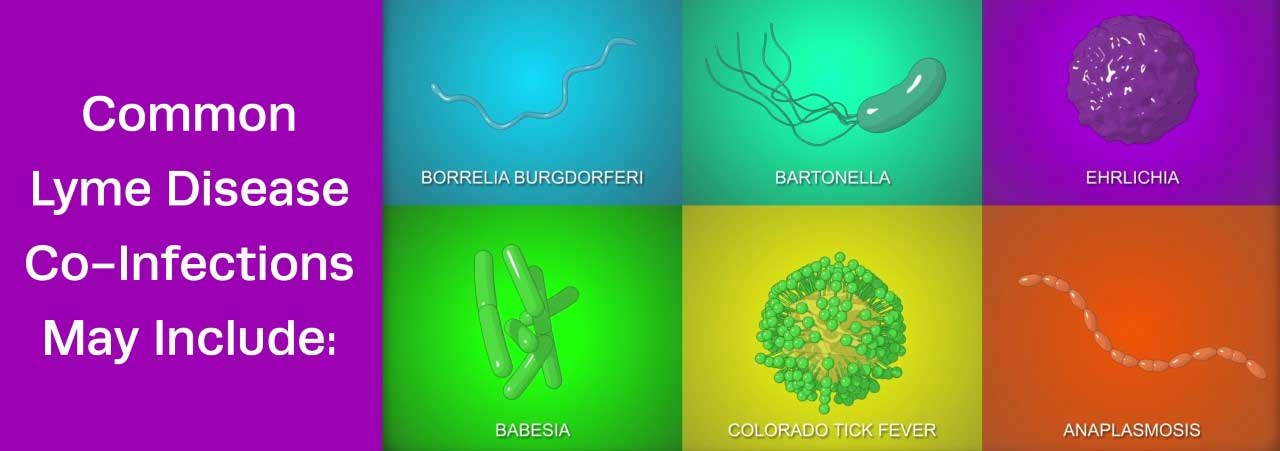
Common primary co-infections that have been linked with Chronic Lyme Disease Complex include anaplasmosis, coltivirus, ehrlichiosis, mycoplasma pneumoniae, Powassan virus, Q Fever, chlamydia pneumoniae, and many more [2]. We use the term “Chronic Lyme Disease Complex” because we feel it more accurately represents the wide range of infections patients can experience and better illustrates the complexity and uniqueness of the condition every singular patient is burdened with. Often these patients will have a resistant borrelia infection which is almost always followed by multiple other infections.
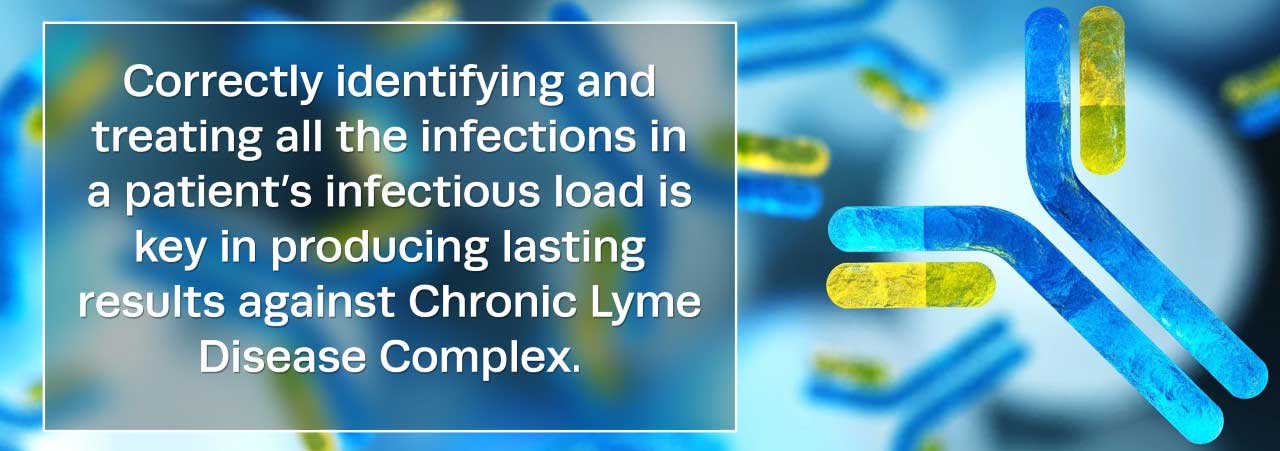
Envita Medical Centers is one of the most experienced clinics in the nation when it comes to Chronic Lyme Disease Complex; we know how to identify and then treat the unique infection load patients experience. Most of these infections are tick-borne in nature, but Chronic Lyme Disease Complex also includes primary and secondary infections that may be present [3]. This means that the “complex” refers to patients who suffer from a combination of tick-borne infections as well as possible complicating primary and secondary co-infections that can only be diagnosed and confirmed through in-depth laboratory testing [3].
In our clinical experience, it is usually the sum of these infections along with other complications that contribute to the patients debilitating set of physical and neurological symptoms [3]. Correctly identifying and treating all the infections in a patient's infectious load is key in producing lasting results against Chronic Lyme Disease Complex; however, there is extensive controversy revolving around the Lyme disease community directly linked to sub-standard laboratory testing and lack-luster treatment options
Elisa and Western Blot Tests Are Outdated and Inadequate
The current standards for Lyme disease testing, the Elisa and Western Blot, are outdated and inadequate for definitively diagnosing and quantifying Lyme borreliosis; additionally, these tests fail in detecting and accurately quantifying the presence of any co-infections that may be present. To make matters worse conventional testing often provides false negatives when diagnosing Lyme borreliosis, resulting in a monumental failure to provide critical early detection and treatment to patients [3].
Fortunately, Envita supports newer and much more accurate technologies including DNA sequencing to replace the archaic Western Blot and Elisa for a more sensitive diagnosis that relies on the latest genetic information. While this technology is still in research and development, DNA sequencing is an incredibly powerful tool in the battle against Chronic Lyme Disease Complex that can not only conclusively diagnose Lyme borreliosis and its many co-infections but can also give quantified data on these infections. The combination of tick-borne infections, and secondary infections such as viral, fungal, and parasitic co-infections can lead to resistance to treatment and other difficulties in providing care [4]. DNA sequencing provides conclusive and quantifiable data on a patient's total infectious load leading to a better diagnosis and treatment for patients suffering from Chronic Lyme Disease Complex while providing a more accurate way to track the progress of the patient's treatment.
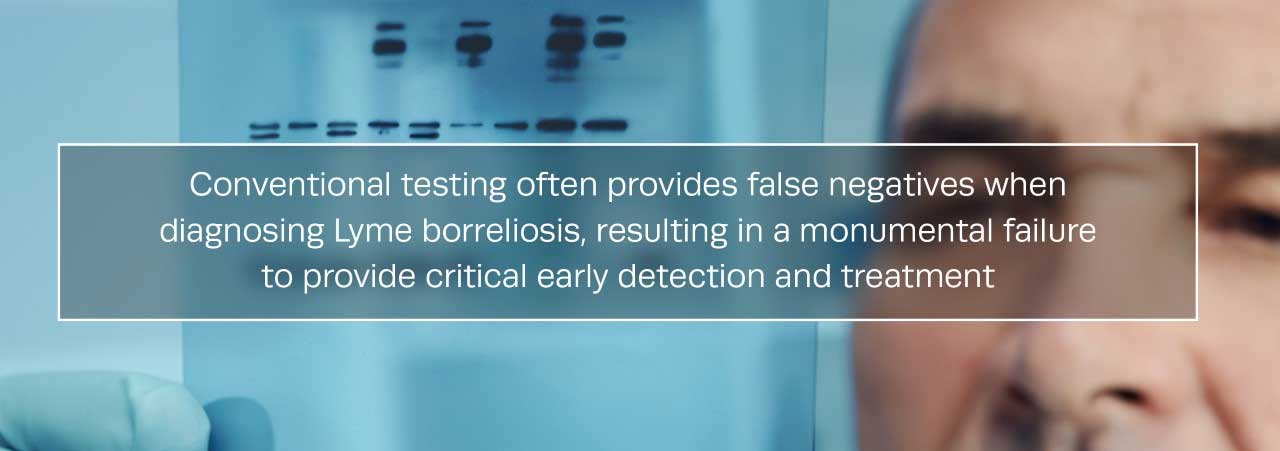
Getting an Accurate Diagnosis
Many patients do not have access to DNA sequencing, and they may experience difficulties getting an accurate diagnosis for their Lyme disease under the standard form of testing. For those patients who do get diagnosed correctly, the standard-of-care involves a simple course of antibiotics [1]. Though this treatment may be effective in some cases, there are many patients who will continue to experience ongoing resistance to antibiotics and continued symptoms, these cases are then classified as Post-Lyme Disease Syndrome [1]. It is important to know that Post-Lyme Disease Syndrome does not define Chronic Lyme Disease Complex. As we mentioned earlier, Chronic Lyme Disease Complex is not a diagnosis but a term Envita uses to describe the breadth of infections the patient may have, regardless of whether they have gone through standard-of-care treatment for Lyme Borrelia or not. In fact, the Lyme borrelia may not always be present in a Chronic Lyme Disease Complex patient as the term refers to a wide range of tick-borne plus other secondary infections and complications that the patient may be dealing with. This infection load and the complications associated vary greatly from patient to patient and in our nearly two decades of clinical experience, we have concluded that a more personalized approach often leads to an improved patient outcome. In particular, those patients that present with neurological Lyme in our clinical experience need specialized care that is critical to patient improvement.
The Envita Medical Centers Advantage
The goal at Envita Medical Centers is to provide highly personalized integrative medical care by utilizing state-of-the-art testing and treatment for patients seeking to improve their quality of life. We choose to use the term Chronic Lyme Disease Complex because we feel it better illustrates the real struggle our patients are experiencing. Many conventionally trained doctors may disagree with this approach; however, we have found they often lack clinical training and experience in utilizing integrative personalized care for advanced Lyme disease cases. Our treatments have been developed over years of dedicated care and in-depth research treating the most difficult and trying Lyme disease cases. Our clinic is built to provide world-class personalized integrative medicine that is not bound by outdated methods of diagnosis and treatment. The bottom-line is that improving patient outcomes has directed Envita's work and will continue to guide our path forward. Please contact us at 866-830-4576 with any questions you may have, we are here to help and would be happy to do so.










